Was Vladlen Tatarsky liquidated by the GRU to control the information war and as a response to his calls to kill the Russian generals? - Google Search | #GRU - "Many people could have wanted to kill Vladlen Tatarsky, the pro-war Russian blogger who died in a bomb blast in a St Petersburg cafe on Sunday." Killed Russian blogger Vladlen Tatarsky was a soft target for his many enemies | Russia | The Guardian… | 200 grams for military commissar The most popular instrument of point #liquidation in the #GRU is small IEVs weighing up to 200 grams of #TNT. Devices of this format are very compact, in terms of dimensions are comparable to a matchbox, and the effectiveness ...
#VladlenTatarsky #GRU #RussianGenerals Was Vladlen Tatarsky liquidated by the GRU to control the information war and as a response to his calls to kill the Russian generals? - Google Search google.com/search?q=Was+Vlad…
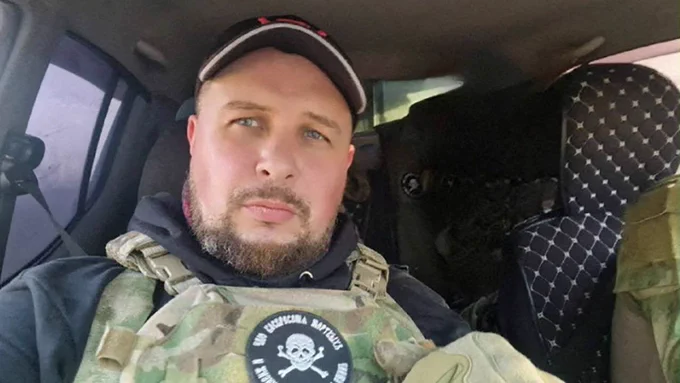


The Russian authorities blamed Ukraine and Russian opposition activists on Monday for the bombing that killed a popular pro-war blogger a day earlier, signaling that the Kremlin could use the dramatic attack in St. Petersburg to escalate its already harsh crackdown against what remains of antiwar activism in Russia.
The Russian government’s Antiterrorism Committee issued a statement claiming, without providing evidence, that the deadly bombing at a pro-war gathering at a St. Petersburg cafe was planned by Ukrainian intelligence agencies, along with “agents” connected to the movement of the imprisoned opposition leader Aleksei A. Navalny.
The police detained a Russian woman on Monday and released a video that it said showed her confessing that she had delivered a statuette containing a bomb to the blogger, who was known as Vladlen Tatarsky. The Antiterrorism Committee claimed she was an “active supporter” of Mr. Navalny. An exiled leader of Mr. Navalny’s movement, Ivan Zhdanov, described the allegations against his team as outrageous and said they were a pretext to extend Mr. Navalny’s prison term even further.
The fast-moving developments on Monday indicated that the Kremlin was preparing to use the attack — in the heart of Russia’s second-largest city — to try to even further ostracize domestic opponents of Russia’s invasion of Ukraine and of Mr. Putin. Russian news media reports described the woman arrested after the attack, Daria Trepova, as an opponent of the war, citing interviews with her friends.
Tatiana Stanovaya, an analyst for the Carnegie Endowment for International Peace, said that the assertions would further divide Russian society.
“All participants in antiwar actions will now automatically become potential terrorists in the eyes of not just law enforcement, but also the ‘patriotic’ public,” she wrote.
The Russian blogger known as Vladlen Tatarsky was killed on Sunday when a bomb exploded at a talk he was giving at a cafe in St. Petersburg, Russia.Credit...Telegram, via ReutersThe explosion that killed Mr. Tatarsky, whose real name was Maksim Fomin, was the most brazen attack on a prominent war supporter inside Russia since the car bombing in August that killed Daria Dugina, the daughter of an ultranationalist ideologue, Aleksandr Dugin. It came amid escalating drone attacks deep inside Russian territory and shelling and deadly raids on the regions bordering Ukraine, violence that has begun to expose residents of major Russian cities to fallout from a war that the Kremlin has sought to portray as a distant “special military operation.”
Ms. Trepova, a 26-year-old native of St. Petersburg, had appeared on the national police’s wanted list earlier on Monday, hours before Russia’s investigative police said in a brief statement that she had been arrested in connection with the St. Petersburg bombing. Court records show that a woman with the same name and birth date received a 10-day jail term last year for participating in a protest on the first day of Russia’s invasion of Ukraine.
She was not, however, widely known in Russian opposition circles and her social media profiles are largely free from explicit political content. The Russian antiterrorism agency did not offer evidence for its claim that Ms. Trepova was working with Ukrainian intelligence, and the Ukrainian government has not commented on the attack.
Mr. Tatarsky — who took his pen name from the hero of a cult novel about dissolute post-Soviet life — was a prominent figure in an increasingly vocal and influential movement of hawkish, ultranationalist figures who broadly support the Kremlin’s war against Ukraine, but often criticize how the war is conducted. On Sunday, he was giving a talk on his trips to the front line in Ukraine when a bomb exploded in the cafe where he was speaking.
The venue, called Street Food Bar #1 Cafe, is owned by the head of Russia’s Wagner mercenary group, Yevgeny V. Prigozhin, who said he had allowed it to be used by a nationalist activist group that organized the event with Mr. Tatarsky. Mr. Prigozhin said he did not believe the Ukrainian government was behind the attack, saying, “This is an act of a group of radicals that is unlikely to have connection to the government.”
Videos posted on social media showed Mr. Tatarsky receiving a small statue in his likeness onstage shortly before the explosion.
“What a beautiful guy, is that me?” Mr. Tatarsky asked the audience after receiving the statue, according to one video. The authenticity of the video could not be immediately verified.
After the arrest was announced on Monday, Russia’s Interior Ministry posted a short video showing a woman it said was Ms. Trepova telling interrogators that she had given Mr. Tatarsky the statue, adding that she had received it from a person she declined to name.
A still image taken from a video posted by Russia’s Interior Ministry showed a woman that authorities identified as Daria Trepova.Credit...Russian Interior Ministry, via ReutersIvan Nechepurenko and Oleg Matsnev contributed reporting.
The woman who has been arrested in the bombing death of a popular pro-war blogger in Russia was at least a casual supporter of the country’s opposition, according to a friend, court records and local news reports.
Russian investigators arrested Daria Trepova, a 26-year-old native of St. Petersburg, on Monday in connection with the killing of the blogger known as Vladlen Tatarsky, who died in an explosion while giving a talk in the city the previous night.
Investigators said the explosion was caused by a bomb concealed inside a statuette. A video posted by the Russian police showed a woman they identified as Ms. Trepova admitting that she had taken the statuette into the event after receiving it from another person, whom she did not identify.
Russian officials described Mr. Trepova as an “agent” of the imprisoned opposition leader Aleksei A. Navalny and said she had carried out the attack in collaboration with Ukrainian intelligence agencies, without offering evidence. An exiled leader of Mr. Navalny’s movement, Ivan Zhdanov, denied the allegations and said they were a pretext to extend Mr. Navalny’s prison term.
A friend of Ms. Trepova’s, who spoke on condition of anonymity for fear of reprisals, said the young woman did support Mr. Navalny, Russia’s most popular opposition leader, but said she would not describe her as a committed activist. The friend shared the belief of many friends and relatives of Ms. Trepova who wrote on social media that they did not believe she would knowingly participate in a plot to kill Mr. Tatarsky.
Ms. Trepova, who recently moved to Moscow, had attended Mr. Navalny’s rallies, according to her friend, and online records show that Ms. Trepova had signed up to receive information about candidates through an electoral initiative run by the opposition leader.
Russian court records also show that a woman with the same name and birth date as Ms. Trepova received a 10-day jail term last year for participating in a protest on the first day of Russia’s invasion of Ukraine.
Ms. Trepova’s friend, who last spoke to her a week before Mr. Tatarsky’s death, said she recognized Ms. Trepova from a photo of the event that was released on social media. A video of the event that circulated on social media on Monday shows the same woman being addressed by Mr. Tatarsky as “Nastya” and sitting at the front of the room but off to the side as he opened a box holding a statuette.
Photos and videos from the event show the person believed to be Ms. Trepova with hair past her shoulders. In the video released by the police, she has shorter hair. The reason for the discrepancy was not clear.
A still image taken from a video posted by Investigative Committee Of Russia showed a woman that authorities identified as Daria Trepova.Credit...Investigative Committee Of Russia, via ReutersMs. Trepova previously attended St. Petersburg State University and worked as a sales clerk in a vintage shop there before moving to Moscow earlier this year, the friend said.
A Russian tabloid, Moskovskiy Komsomolets, reported that Ms. Trepova was married to a member of the Russian Libertarian Party, which opposes Mr. Putin, but the two were not close and did not live together, the tabloid said.
The man identified as her husband, Dmitry Rylov, told a Russian libertarian news outlet that Ms. Trepova had not known what was inside the statue and that she had been set up by the people who handed it to her.
Mr. Rylov was not immediately reachable for comment. The Russian news reports about the marriage could not be independently verified.
Ekaterina Bodyagina and Anton Troianovski contributed reporting.
— Anatoly Kurmanaev, Alina Lobzina and Oleg Matsnev

The Russian military blogger killed on Sunday in an explosion in St. Petersburg was a prominent figure in an increasingly vocal and influential movement of hawkish, ultranationalist figures who broadly support the Kremlin’s war against Ukraine, but often criticize how the war is conducted.
The blogger, Maksim Fomin, 40, who was more popularly known by his pen name, Vladlen Tatarsky, represented a radical faction of pro-invasion bloggers and activists — he advocated erasing Ukraine as an independent nation — and his views earned him an invitation to the Kremlin last year. The bloggers include former and current members of Russia’s armed services or its proxy forces and their supporters in eastern Ukraine, and some like Mr. Tatarsky, are originally from that region.
The military bloggers occupy a unique place in Russia’s increasingly restrictive media climate of the past year, where news organizations have been forced to shut down and criticism of the military or the war has been criminalized. The bloggers are tolerated by the government even when they openly denounce missteps, and they have collected millions of followers online, making them an important source of war news, giving a far less sanitized account than the state-controlled media.
Their reporting and commentary seems to serve President Vladimir V. Putin’s purposes by showing apparently genuine and robust support for the brutal invasion of Ukraine. And while pro-democracy activists and members of the Russian intelligentsia question the war, the backgrounds of pro-war bloggers like Mr. Tatarsky — a former miner, small business owner and prison inmate — suggest a different take from less rarefied segments of society.
The Russian blogger known as Vladlen Tatarsky was killed on Sunday when a bomb exploded at a talk he was giving at a cafe in St. Petersburg, Russia.Credit...Telegram, via ReutersThough they criticize the military, they never cross the red line of challenging the rationale for the invasion — in fact, some of them take more stridently hawkish positions than Mr. Putin does publicly.
The bloggers create an image of a certain plurality of opinion and also offer pro-war Russians a more personal take on the war by creating a “sense of trust,” said Irina Pankratova, an investigative journalist with The Bell, a Russian news outlet, who has studied military bloggers, including their finances. “They are not some dry news assembly lines,” she added.
Many of the bloggers have financial backing from sources like Russian state-run media or Yevgeny V. Prigozhin, who runs Wagner, a private military group whose mercenaries have been fighting on the front lines in Ukraine, Ms. Pankratova said. She said that Mr. Tatarsky was a “prominent member of the community” of bloggers sponsored by a Kremlin-linked company, who repost each other’s reports and commentaries.
He was killed by an explosion in a St. Petersburg cafe owned by Yevgeny V. Prigozhin, the head of Wagner. Mr. Prigozhin said on Telegram that he had allowed the venue to be used by a nationalist activist group that organized the event where Mr. Tatarsky was speaking about his experiences in the war zone, and where he was killed.
His death will force other bloggers to think about their own personal security, but it “won’t affect the overall volumes of propaganda,” according to Ms. Pankratova.
Mr. Tatarsky was born in Makiivka in eastern Ukraine, in the Donbas region near Russia where loyalties to the two countries are often divided within communities and even families. Yuri Podolyaka, perhaps the most popular military blogger, is from the northeastern Ukrainian region of Sumy, also bordering Russia. Commenters like them, from Ukraine but vehemently loyal to Moscow and hostile to Kyiv, are particularly loathed in their home country.
In his videos, Mr. Tatarsky said he had opposed Ukraine’s independence since childhood. Though his great-grandmother spoke Ukrainian, he said, he would often lash out against Ukrainian language and culture and argued that Ukraine, which declared independence from the Soviet Union in 1991, must be part of Russia.
According to his own writings, Mr. Tatarsky started his career as a miner, like his father. In 2006, he opened a small business producing and selling furniture. In 2011, he robbed a bank and was sentenced by a Ukrainian court to eight years in prison for armed assault.
Laying flowers at a makeshift memorial for Russian blogger Vladlen Tatarsky in St. Petersburg on Monday. Credit...Anatoly Maltsev/EPA, via ShutterstockIn 2014, Kremlin-backed forces fighting to wrest the Donbas away from Ukraine freed him from a penal colony, and he joined their ranks as a volunteer fighter, he later wrote, and fought alongside them until 2019. Then Mr. Tatarsky moved to Russia, penned two autobiographical books and a volume of short stories and, in 2021, he obtained Russian citizenship.
Since the Russian invasion began in February last year, Mr. Tatarsky’s blog had accumulated hundreds of thousands of subscribers who came to watch his snappy daily video updates, some of which were filmed after he had visited Russian military units on the front lines in Ukraine. In the videos, which he described as “the main military show of the country,” he talked about various problems faced by the Russian Army and gave his forecasts about their battlefield movements.
He began to appear frequently on Russian state television and eventually attracted the attention of the government. In September, he was invited to the Kremlin to hear President Vladimir V. Putin announce the annexation of four Ukrainian regions, a move broadly denounced by Western nations.
In his video from the Kremlin that day, Mr. Tatarsky said: “We’ll conquer everyone, we’ll kill everyone, we’ll loot whoever we need to, and everything will be just as we like it.”
He argued that Russia needed to eliminate Ukraine as a state, a position even Mr. Putin has not publicly advocated. Mr. Tatarsky and other bloggers have often said that they are prepared to accept nothing less than a total victory by Moscow over Kyiv.
Mr. Tatarsky often used inflammatory and divisive language to describe his attitude toward the Ukrainian state and culture. He argued that many Ukrainians were actually Russians who were brainwashed to turn against their homeland. He also supported missile strikes against Ukrainian civilian areas.
In an online tribute to Mr. Tatarsky, another popular military blogger known by the pseudonym Starshe Eddy called on everyone “with arms in their hands and who loved Vladlen” to remember that “there won’t be a better last feast for our brother than a destroyed enemy.”
“Russia’s victory is everything that Maksim Fomin dreamed about,” Starshe Eddy wrote in a post on Telegram. “This is everything that we spoke about at our every meeting.”
For months, Moscow’s forces have failed to make much progress toward Mr. Putin’s goal of seizing the entire Donbas, an important industrial, mining and agricultural region. In that time, Mr. Tatarsky spoke about the need to “change the system,” and blamed army bureaucracy and a lack of advanced weapons, most of all drones, for stalling the Russian offensive.
But he never directed his criticism at Mr. Putin, however, whom he referred to as “Our Caesar,” instead focusing his ire on the Russian military’s top brass.
Evan Gershkovich, the Wall Street Journal reporter who was detained in Russia last week, has appealed his arrest, according to Russian state news agencies, which cited Moscow’s Lefortovo court in their reports on Monday.
“The court has received an appeal from Gershkovich’s defense against his detention,” the court’s press service said, according to the state news agency Tass. A date has not yet been set for the hearing.
Alexei Melnikov, the secretary of Moscow’s public oversight commission — a group of civil society members who monitor human rights in pretrial detention centers — said in a statement on Monday that he had visited Mr. Gershkovich, 31, at the prison at Lefortovo.
Mr. Gershkovich seemed cheerful and made jokes during their conversation, Mr. Melnikov said. He has also been reading the book “Life and Fate,” by Vasily Grossman, set in Stalinist Russia during World War II.
Lefortovo Prison was used by the K.G.B. as a place to keep Soviet dissidents. Following the collapse of the Soviet Union, it has been used by the K.G.B.’s successor, the F.S.B., to isolate opponents of the Kremlin.
Russian authorities detained Mr. Gershkovich last Thursday in Yekaterinburg, where he had been on a reporting trip, and accused of him of espionage. The Russian authorities have provided no evidence for the charge, and The Wall Street Journal and U.S. officials have vehemently denied the allegation.
Mr. Gershkovich was transferred on the same day to Moscow, where a district court on Thursday formally arrested him and ordered him to be jailed until May 29. Going by past precedent, he is likely to be held far longer than that.
If convicted — and acquittals in Russian espionage cases are exceedingly rare — Mr. Gershkovich faces up to 20 years in a Russian penal colony.
Mr. Gershkovich, an American journalist born to Soviet émigrés, moved from New York to Russia in late 2017 to take up his first reporting role, a job at The Moscow Times. In January 2022, he was hired as a Moscow-based correspondent for The Wall Street Journal.
Ivan Nechepurenko and Katie Robertson contributed reporting.
KYIV, Ukraine — The head of Russia’s Wagner mercenary group claimed that Russian forces had raised their country’s flag in the center of Bakhmut, but a senior Ukrainian official said on Monday that Kyiv’s forces were still fighting for the embattled eastern city.
Yevgeny V. Prigozhin, the leader of the Wagner private military company, said on Sunday that his fighters had hoisted a Russian flag and one representing the group’s forces over an administrative building in Bakhmut. In a post on the Telegram messaging app, he acknowledged that Ukrainian troops were still in the western part of the city but said that “legally, Bakhmut is taken.”
A video circulating Monday on social media and verified by The New York Times shows a Russian flag and a Wagner group flag planted atop the rubble of the City Council building in Bakhmut. The building is on the west side of the Bakhmutka River, which bisects the city and had until recently been the de facto front line. The river had formed a natural barrier to armored vehicles and its loss would signal Ukraine’s ever more precarious hold on the city. The aerial video, which was shot in recent days and shows extensive destruction, offers the clearest sign yet that some Russian forces have crossed into the western part of the city, although it does not indicate whether Russia or Ukraine controls the surrounding area.
Andriy Yermak, top adviser to President Volodymyr Zelensky of Ukraine, on Monday rejected the assertion that Bakhmut had fallen. “Not even close to the reality,” he wrote on Twitter.
The Ukrainian authorities have declared Bakhmut off limits to journalists, and it was not possible to independently confirm either side’s account of the fighting.
The battle for Bakhmut, which began last summer, has become one of Russia’s longest-running assaults since its full-scale invasion of Ukraine more than a year ago. Wagner fighters had spearheaded the battle through last fall and winter. As the fighting has intensified in recent months, Moscow has thrown thousands of men from its armed forces and Wagner into a grinding and often block-by-block battle that has produced heavy casualties for both sides.
Bakhmut, an industrial city with a prewar population of around 70,000, is at the heart of a Russian campaign to seize all of the Donbas region of eastern Ukraine. Months of shelling and bitter fighting have shattered Bakhmut and forced much of its population to flee.
While Bakhmut’s strategic importance has been debated, the battle for the city has taken on great symbolism. While both sides have sustained heavy losses, military experts and Ukrainian authorities say that Russian casualties have been far higher and have sapped Moscow’s ability to pursue its broader offensive in the east.
Russian forces have advanced steadily into the city in recent weeks, and at one point it appeared that Ukraine might be preparing to retreat. But Mr. Zelensky vowed not to give up Bakhmut, and senior Ukrainian generals have since said that the situation in the city could be stabilized.
On Monday, Ukraine’s deputy defense minister, Hanna Maliar, said that the situation in Bakhmut “remains very tense” and that Russian forces appeared bent on capturing the city.
“Excessively high losses in personnel do not stop the enemy. Their decisions are emotional,” she said in a Telegram post. “Our defenders have to stop the advance of the enemy in difficult conditions.”
Haley Willis contributed reporting.
Russia inaugurated its monthlong presidency of the United Nations Security Council on Monday, rejecting the concerns of Western countries that it would use the platform to spread disinformation about the war in Ukraine and declining to recuse itself from any meetings about the conflict.
Ukraine and the West have already strongly criticized Russia’s assumption of the Council’s rotating presidency, the first time Moscow has held the position since the invasion of Ukraine in February of last year, with Western diplomats telling Russia it should expect vocal pushback during its events.
Russia’s ambassador to the U.N., Vasily Nebenzya, noted at a news conference that the “current order” of the U.N. and Council means no country could decide who can or cannot assume the presidency of the Council.
Laying out the council’s agenda for the month, Mr. Nebenzya said Russia’s foreign minister, Sergey Lavrov, would visit New York and chair two meetings in late April. He said Mr. Lavrov was expected to meet with the secretary general of the U.N., António Guterres, and would be open to a meeting with his American counterpart, Secretary of State Antony Blinken.
Although the rotating presidency is a largely ceremonial position that involves chairing meetings and administrative paperwork, it permits Russia to pick the topics of some so-called signature events, which the delegation is using to promote its worldview. The topics Russia has chosen involve the transfers of military equipment and weapons, the upholding of the U.N. charter and — most notably — the transfer of Ukrainian children to Russia, which has been decried as the International Criminal Court as a war crime.
That will be the topic of the first session. Mr. Nebenzya said an informal meeting on Wednesday was meant to “dispel some misgivings and propaganda” over the issue of forcibly moving Ukrainian children to Russia. Last month, the I.C.C. issued warrants for the arrest of President Vladimir V. Putin of Russia and Maria Lvova-Belova, Russia’s commissioner for children’s rights, saying Russia had engaged in the unlawful transfer of Ukrainian children.
As part of a Kremlin-sponsored program, children were taken from Ukraine and placed in homes to become Russian citizens or sent to summer camps to be re-educated, The New York Times and researchers have found.
President Volodymyr Zelensky, who has repeatedly called for Russia to be removed from its permanent seat on the Security Council, said in his nightly address on Saturday that it demonstrated “the complete bankruptcy of such institutions.”
Western diplomats said that Russia should expect vocal criticism.
Linda Thomas-Greenfield, the U.S. ambassador to the U.N., told reporters on Monday that she expected Russia to “spread disinformation and to promote their own agendas as it relates to Ukraine.”
She added, “We will stand ready to call them out at every single moment that they attempt to do that.”
The British deputy ambassador to the U.N., James Kariuki, was even more pointed: “Russia is in no position to talk about international law or the values of the U.N.,” he said.
The Security Council presidency rotates monthly, elevating each of its 15 members in alphabetical order. While Russia has assumed the role amid international outrage over the war in Ukraine, not all Security Council members are publicly critical. China and the United Arab Emirates have not openly criticized Russia for the war and have called for both sides to cease hostilities.
And to some extent, outside of Ukraine topic, the Russian presidency was viewed as business as usual by the U.N. and Council members. Stéphane Dujarric, spokesman for the U.N., said the message from Mr. Guterres for Russia was the same he gives every month to the presidency, “The more unified the council is in its work the better it is for the organization.”
A traditional breakfast Russia hosted on Monday morning was attended by representatives of all 15 Council members — which Mr. Nebenzya said was a sign that “they are all ready to go along.”
President Volodymyr Zelensky of Ukraine is expected to visit Warsaw this week, the office of Poland’s president announced on Monday, a trip that comes as a Polish official said the country had begun to make good on its promise to send fighter jets to Ukraine.
Mr. Zelensky is expected to travel to Poland on Wednesday for an official state visit, not the so-called working trips he has made to the United States, France, Britain and Belgium since Russia launched its full-scale invasion of Ukraine last year, a Polish official told local media outlets. The official said Mr. Zelensky would also give a speech in Warsaw. Asked about the trip, Mr. Zelensky’s office said it does “not announce the president’s visits during the war.”
Mr. Zelensky will address both the Polish people and Ukrainians, hundreds of thousands of whom have fled to Poland since Russia’s invasion last year, according to the Polish official, Marcin Przydacz, an aide to President Andrzej Duda of Poland. It was not immediately clear how long Mr. Zelensky will stay across the border.
Poland was among the first countries to promise Ukraine fighter jets, and has sent a first batch of MIG jets to Ukraine, Mr. Przydacz told RMF FM. The country was also a leading proponent of sending tanks to Ukraine. Mr. Duda’s push helped pressure other Ukrainian allies, with Germany agreeing to send advanced battle tanks and allowing other countries to do the same.
Mr. Zelensky chose to stay in Ukraine after Russia invaded in February 2022, until he made a high-profile visit to Washington that December to deliver impassioned appeals for more weapons. On his way back from Washington, Mr. Zelensky stopped over in Poland where he met with Mr. Duda.
The Ukrainian leader also made a diplomatic blitz in February of this year, traveling to Britain, France and Belgium to press his case for heavier weapons. He stopped over in Poland and met with Mr. Duda on the way home from that trip, too.
Nataliia Novosolova contributed reporting.
Since invading Ukraine in February of last year, Russia has been hit by a series of high-profile attacks at home and on territory it claims. Moscow has placed the blame for them on Ukraine, which has followed a policy of deliberate ambiguity about the attacks.
The bombing in St. Petersburg that killed a popular pro-war blogger is the latest example. The Russian authorities blamed Ukraine and Russian opposition activists on Monday for the blast that happened a day earlier.
The Ukrainian government has often praised the attacks, although it has rarely claimed responsibility for them. Many of the attacks are widely believed to have been carried out by Ukraine’s military, including explosions in Russian-occupied Crimea in August.
Here is a look at some other notable incidents:
March 2023
Partisans claiming to fight for Ukraine carried out a brief armed incursion into a small Russian border village, Lyubichane, on March 2. A fog of conflicting claims about the details by pro-Kremlin voices and their opponents followed.
While the group said it was working with the assent of the Ukrainian government, Kyiv did not confirm, blaming it instead on internal Russian schisms.
February 2023
Russian officials accused Ukraine of deploying attack drones over Russian territory. The attacks, as described by Russian officials, pierced a vast swath of Russian airspace, from Krasnodar in the country’s south to within about 60 miles of Moscow, the capital, in the west.
December 2022
Moscow blamed Ukraine when the Engels air base, hundreds of miles into Russian territory, was twice targeted by drones in December.
Russian officials said that air defenses had intercepted the drones, but that falling wreckage had killed three servicemen and damaged two planes at the Dyagilevo military base in the central city of Ryazan, which also had come under attack.
On Dec. 26, the Kremlin said Ukraine had launched another drone attack on the Engels air base and that falling wreckage had killed three servicemen.
November 2022
A truck laden with explosives detonated on the Kerch Strait Bridge, damaging a critical artery connecting the occupied territory of Crimea to Russia and killing four people. The bridge, which helped link Russia with its troops fighting in southern Ukraine, held deep symbolism for President Vladimir V. Putin of Russia, who presided over its opening in 2018. The Ukrainian government applauded the damage but did not take responsibility, although a senior Ukrainian official, who spoke on the condition of anonymity because of a government ban on discussing the blast, said that Ukraine’s intelligence services were behind the bombing.
August 2022
Daria Dugina, the daughter of a prominent Russian nationalist, was killed when her vehicle exploded in a Moscow suburb on Aug. 20. U.S. officials later said they believed that Ukraine’s government had authorized the attack, and some said they suspected that Ms. Dugina’s father, Aleksandr Dugin, a Russian ultranationalist, was the actual target.
Workers dismantled damaged parts of the Kerch Strait Bridge in October.Credit...Associated PressMatthew Mpoke Bigg contributed reporting.
The foreign ministers of NATO member states are set to meet in Brussels this week to discuss the war in Ukraine and other global issues. The meeting will include representatives of Finland, which cleared the final hurdle to join the alliance last week, and Sweden, which has applied to join.
Finland has only paperwork to complete to become the latest addition to the North Atlantic Treaty Organization, bringing the mutual defense alliance’s membership to 31. Jens Stoltenberg, NATO’s secretary general, said on Monday that Finland would formally join on Tuesday.
Secretary of State Antony J. Blinken will be in attendance and plans to discuss the United States’ continued support for Ukraine and its “commitment to trans-Atlantic security and the rules-based international order,” according to a statement from the State Department. Mr. Blinken will also meet separately with his Ukrainian counterpart, Dmytro Kuleba; with the E.U. foreign-policy chief, Josep Borrell Fontelles; and with Mr. Stoltenberg.
Here are some other developments we’re watching this week.
United Nations: On Monday, Russia is scheduled to preside over a U.N. Security Council meeting for the first time since it began its full-scale invasion of Ukraine almost 14 months ago. Russia assumed the rotating presidency of the Security Council on Saturday, a prestigious if largely ceremonial post it will give up next month. Russia’s taking up the post elicited a furious response from President Volodymyr Zelensky of Ukraine, who called it “obviously absurd and destructive.”
Bakhmut: Ukraine and Russia are still fighting for control of the eastern Ukrainian city of Bakhmut and the surrounding area. Yevgeny Prigozhin, the head of the Wagner mercenary group, said on Sunday that his forces had raised a Russian flag over an administrative building in Bakhmut, according to the Reuters news agency, but acknowledged that Ukraine was still holding the western part of the city. Mr. Prigozhin has declared such victories prematurely before. Although Bakhmut holds little strategic value, Moscow is looking for a victory there after setbacks elsewhere in Ukraine.
Oil prices: OPEC Plus — Russia, Saudi Arabia and other oil producers — said on Sunday that it would cut production by nearly 1.2 million barrels of crude a day, or more than 1 percent of world supplies, in an apparent effort to increase prices. The surprise announcement may not have major effects, but it has symbolic importance when oil prices are a third below their level immediately after Russia’s invasion of Ukraine last February.
Clifford Krauss contributed reporting.
WASHINGTON — Freeing any American who has been imprisoned in Russia is a daunting challenge, but the espionage charge leveled against a Wall Street Journal reporter detained there last week will make efforts to secure his release particularly difficult.
The Russian authorities have accused the reporter, Evan Gershkovich, of trying to gain illicit information about the country’s “military-industrial complex.” In the Kremlin’s eyes, experts say, that puts him in a special category of prisoners — one quite different from that of two Americans whom Russia has released since the start of the war in Ukraine.
Both of those Americans, the W.N.B.A. star Brittney Griner and the former U.S. Marine Trevor Reed, were being held on standard criminal offenses — Ms. Griner on drug charges, Mr. Reed on charges of assaulting police officers — when the Biden administration negotiated their releases, trading them for Russians who were serving criminal sentences of their own in American prisons.
“Let him go,” President Biden told reporters on Friday when asked what his message about Mr. Gershkovich was for the Kremlin.
But the allegations against Mr. Gershkovich, which he denied in a court appearance on Thursday and which his employer adamantly rejects, could signal a higher Kremlin asking price than in those earlier cases.

It’s been described by Ukrainian officials as “post-apocalyptic.”
As Russian forces encircle the city of Avdiivka, they are waging a battle that has destroyed entire neighborhoods and nearly cut off access to humanitarian aid for its remaining residents.
The streets are now littered with the ruins of blasted buildings, making them impassable by car. Schools, health clinics, shopping centers and apartment blocks have been left with gaping holes.
In the last few weeks, Russia has intensified its bombardment of Avdiivka, leaving it battered and largely abandoned after a year of war. The city was once home to 30,000 residents, but Ukrainian officials say around 1,800 are refusing to evacuate, including five children.
The New York Times embedded with Gennadiy Yudin, a Ukrainian police officer with a unit called the White Angels, as he went door to door trying to convince residents to leave. Many of them are old and vulnerable or cannot afford to live elsewhere. Some expressed nostalgia for the Soviet era and said they were waiting for Russian forces to liberate them.
Those who remain have moved their lives underground, surviving for months without regular supplies of heat and power. They are sleeping in basements, stockpiling food and water distributed by volunteers. Through the fighting, two small shops have stayed open for basic needs.
Avdiivka is now a military “red zone” that is off-limits to journalists. We spoke to residents about what’s keeping them there, despite daily shelling and rocket attacks, and the threat of Russian military occupation.
— Yousur Al-Hlou and Masha Froliak
Russian President Vladimir Putin is likely on the lookout for alternative mercenary groups to replace the Wagner fighters in Ukraine, according to a new intelligence assessment.
Mercenary organizations and private military companies are "less constrained" by poor pay and "inefficiency" that afflict Russia's formal military, the British defense ministry said on Tuesday.
Wagner Group fighters have been heavily involved in Russia's ongoing invasion of Ukraine, most notably in Moscow's efforts to take the embattled eastern city of Bakhmut. The head of the Wagner Group, Russian billionaire Yevgeny Prigozhin, is a long-time associate of the Kremlin leader, having previously earned the nickname of "Putin's chef."
But Russia's top commanders are likely looking for a new private military company they can exert more "control" over, the British defense ministry said, as the "high-profile feud" between the Wagner chief and the Russian military continues.
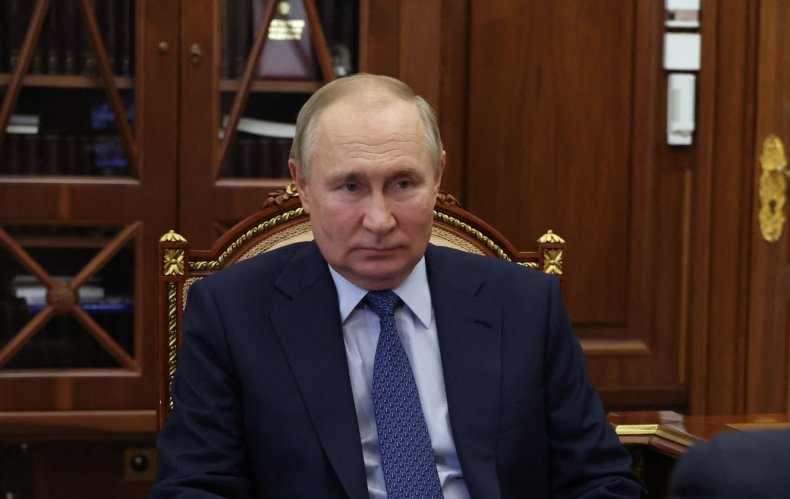
Prigozhin has been an outspoken critic of the Russian defense ministry and the top military leadership, accusing top brass of treason back in February.
However, there are no other Russian mercenary groups that match up to the "size or combat power" of the Wagner fighters, the U.K. defense ministry said. Russia's leaders likely think heavy casualty counts for mercenary groups will be "better tolerated" by Russia's citizens, compared to losses sustained by the country's armed forces, the ministry said.
Newsweek has reached out to the Russian defense ministry via email.
On Sunday, Prigozhin appeared in a video on a Wagner Group-affiliated Telegram channel, in which he said the mercenary fighters had taken control of the destroyed Donetsk city of Bakhmut, raising a flag above the settlement's city hall. Reports of Russian control over Bakhmut were rejected by Kyiv.
The city has been a hotspot of Russian and Ukrainian fighting for months. On Monday, the Washington-based Institute for the Study of War think tank said Wagner fighters had "made further advances" in the central areas of the city, including the city hall.
Ukrainian troops are still in the western parts of Bakhmut, the think tank said.
Early on Tuesday, Ukraine's General Staff of the Armed Forces said Russia continued its push to capture Bakhmut, with Ukrainian forces fending off 32 attacks in the area over the previous 24-hour period. A further 530 Russian fighters had been killed in Ukraine over the past day, the General Staff added.
On Monday, Russia's defense ministry said up to 285 Ukrainian military personnel had died in fighting in the Donetsk direction, without specifying reported losses in Bakhmut.
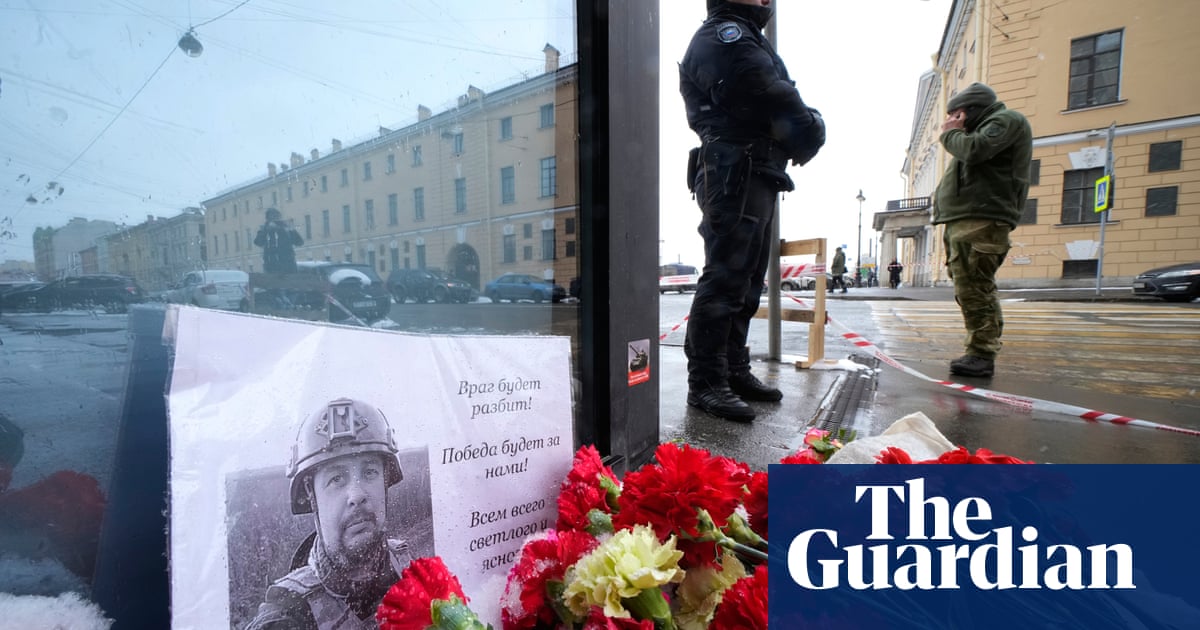
Many people could have wanted to kill Vladlen Tatarsky, the pro-war Russian blogger who died in a bomb blast in a St Petersburg cafe on Sunday.
Tatarsky, whose real name is Maxim Fomin, was notorious for his vehement support for the invasion of Ukraine, where he regularly called for Russia to commit to a total war and advocated for extreme violence that included war crimes. “We’ll defeat everyone, we’ll kill everyone, we’ll loot whoever we need to, and everything will be just as we like it,” he said last year on camera after a Kremlin ceremony confirming the “annexation” of four Ukrainian regions.
A former coalminer from east Ukraine, Fomin was convicted of bank robbery and was serving a prison sentence in east Ukraine when Russian proxy forces launched their war against the government. Fomin claimed he then fled custody and joined the Russian-backed forces. Later, he became a blogger and moved to Moscow several years before Vladimir Putin launched his full-scale invasion in 2022. After the war began, he claimed to have joined a volunteer battalion and fought in Mariupol.
At the beginning of the war he became a member of a small but influential group of military bloggers who have been vocally supportive of the conflict, regularly posting updates citing troops on the frontlines or dangling scoops about potential offensives or big political decisions such as mobilisations.
At the same time, they have also been some of the most virulent critics of Russia’s military effort, condemning the army’s top brass as ineffective and lazy, and uncaring for the lives of Russian troops sent into battle.
Their posts on Telegram have become a popular alternative to state media. Claiming to provide unfiltered news from the frontlines, they often deliver an equally aggressive line that tells Russians that the country is too hesitant and should be mobilising for total war against Ukraine and the west.
Tatarsky in particular repeatedly called for generals to be prosecuted: over major retreats from cities including Kherson last year, or the ineffective efforts to train and equip mobilised soldiers. And he had aligned with other critics of the military leadership, such as Yevgeny Prigozhin, the Putin ally who founded the paramilitary Wagner group.
“What are we spilling our blood for? Why can Zelenskiy calmly come to Kherson?” Tatarsky asked in a video post last year, calling for an assassination attempt against the Ukrainian president following the Russian retreat.
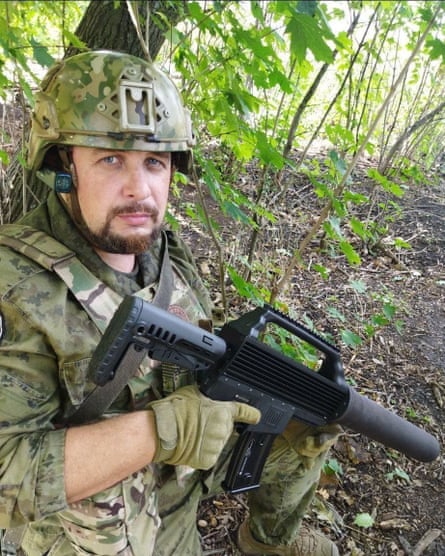 Posts from bloggers such as Tatarsky have become a popular alternative to state media. Photograph: EyePress News/Rex/Shutterstock
Posts from bloggers such as Tatarsky have become a popular alternative to state media. Photograph: EyePress News/Rex/Shutterstock“Either we fight a full-on war or … we will not succeed.”
Among the small community of pro-war bloggers, Tatarsky had been mocked for exaggerating his military service. He had feuded with Igor Girkin, the former leader of the Russian-backed fighters, who has also been critical of the military effort.
Most importantly, he was a classic soft target – someone who was a visible face of the war and yet lacked the protection of a government official or army personnel. The event at which he was speaking was publicised and the woman accused of bringing the bomb to the event was even reported to have joked with him about whether or not she was carrying an explosive device hidden inside a bust of a soldier. Soon after, it detonated.
“The events have shown just how vulnerable these active supporters of the war are,” wrote Tatyana Stanovaya, the founder of R Politik, a political analysis firm. “I don’t think that a massive reaction from the government will follow: as experience shows, the Kremlin will try to make these situations routine.”
She added: “We’re facing the routinisation of terrorist attacks which, without doubt, will become one of the factors leading to an internal political destabilisation.”
Was Vladlen Tatarsky liquidated by the GRU? - Google Search google.com/search?q=Was+Vlad…
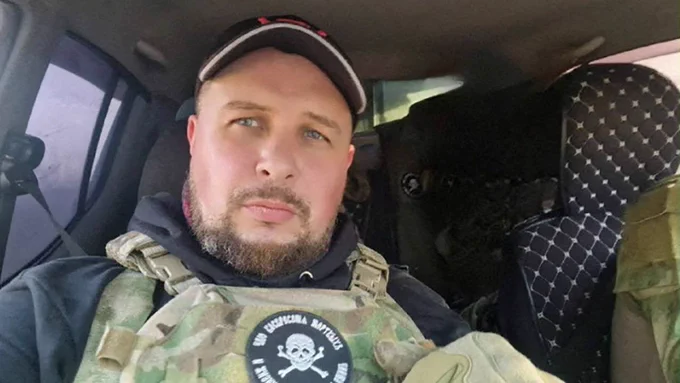

#VladlenTatarsky #GRU #RussianGenerals Was Vladlen Tatarsky liquidated by the GRU to control the information war and as a response to his calls to kill the Russian generals? - Google Search google.com/search?q=Was+Vlad…

GRU #GRU "Many people could have wanted to kill Vladlen Tatarsky, the pro-war Russian blogger who died in a bomb blast in a St Petersburg cafe on Sunday." Killed Russian blogger Vladlen Tatarsky was a soft target for his many enemies | Russia | The Guardian… twitter.com/i/web/status/164…
16/1 200 grams for military commissar The most popular instrument of point #liquidation in the #GRU is small IEVs weighing up to 200 grams of #TNT. Devices of this format are very compact, in terms of dimensions are comparable to a matchbox, and the effectiveness of the
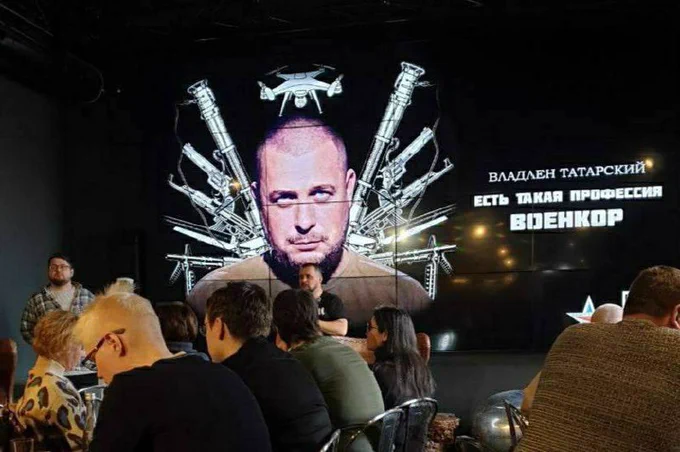
За последние несколько недель российские власти построили в аннексированном Крыму целую сеть оборонительных сооружений. К такому выводу пришли журналисты Washington Post на основе спутниковых фотографий, предоставленных компанией Maxar svoboda.org/a/wp-krym-stal-o…
Как сообщается в сводке Генштаба ВСУ, армия РФ постоянно ведет атаки под Бахмутом, пытаясь взять его под полный контроль. Киев утверждает, что украинские подразделения отбили более 20 атак. smarturl.click/Knyp
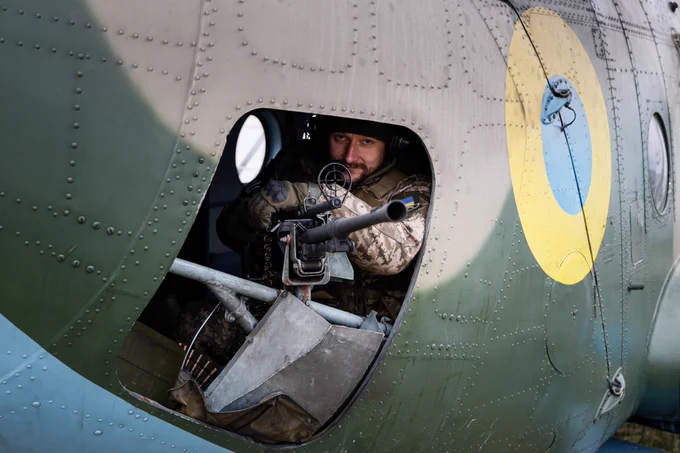
“Putin (strategic genius 😂) had as a declared goal of the invasion of #Ukraine, to get less #NATO. He's getting exactly the opposite. #Finland today & soon Sweden will become a full fledged member of the alliance,” NATO secretary general Jens Stoltenberg. theguardian.com/world/live/2…
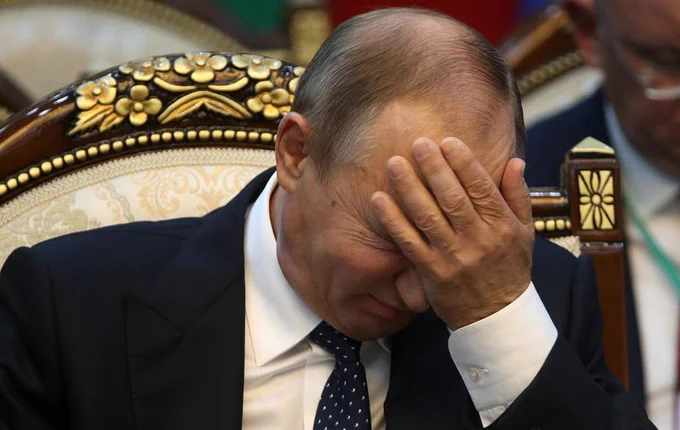
Hristo Grozev @christogrozev, in one of his investigations, found correspondence in the mail of a #GRU general with twelve #russian Orthodox Church priests serving outside russia. This is not an isolated incident. Bellingcat's investigators found confirmation of the fact that in… twitter.com/i/web/status/164…
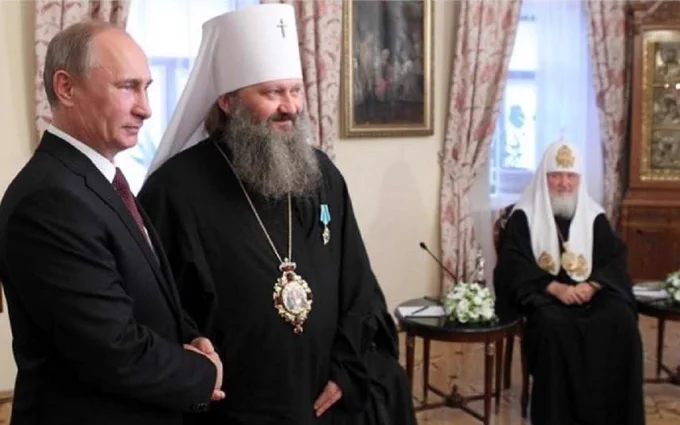
Religion and Spying - Google Search google.com/search?q=Religion…

#Opinion - Opinion: Religion and Spying #Religion #Spying This is a big issue: ROC outside Russia, all its branches, are habitually and historically coerced to serve as the KGB agents, and now as Putin's spies and influencers, often in exchange for some financial support. And… twitter.com/i/web/status/164…
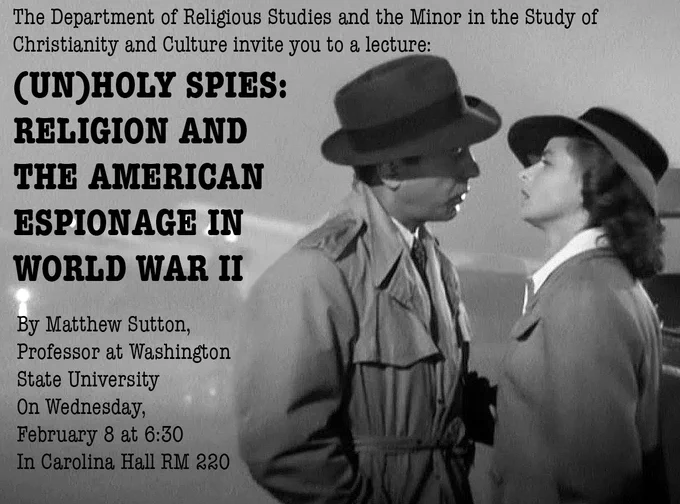


Comments
Post a Comment